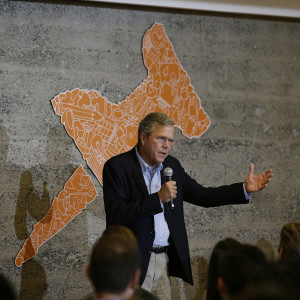Despite the Internet, technology and digital connectivity’s ever-increasing role in American’s everyday lives, policy issues surrounding tech still rarely make it to the forefront of American politics — and though these issues don’t impart the urgency of challenges like Islamic extremism in the Middle East or an imminent government shutdown from a Congressional impasse, they have drastic implications for the future of the American economy, according to Federal Communications Commissioner Ajit Pai.
“If they did talk about tech issues, I think one of the primary things would be on ways to promote broadband deployment around the country,” Pai told InsideSources about topics he would like to hear 2016 presidential candidates discuss in upcoming debates.
Tech and cyber have only come up briefly during GOP and Democratic debates thus far. Few candidates have announced concrete platforms on issues like cybersecurity and net neutrality, and on the legislative side, the Senate passed its first cyber bill in years just last week, after a year of high-profile hacks against Sony Pictures and the U.S. Office of Personnel Management.
Earlier this summer Pai proposed his own plan for helping smaller, rural broadband providers expand their networks, which he explained are essential to driving innovation and entrepreneurship in bigger cities, and crucial to the survival of smaller communities in rural states like Nebraska, Nevada or his home state of Kansas.
“That’s something that I know compared to ISIS and the national debt might not be the highest profile issue,” Pai continued, “but nonetheless in terms of economic growth and job creation, and also the preservation of some of these smaller communities that are otherwise withering away, that’s a really critical issue.”
Broadband has been the hottest topic at the FCC in the year since Chairman Tom Wheeler mulled and passed net neutrality regulations in February, placing stiffer, common carrier public utility regulations over Internet service providers, and banning them from throttling, blocking or charging more for faster traffic speeds for companies like Netflix, Amazon and Google-YouTube.
Pai and fellow Republican Commissioner Michael O’Rielly opposed the regulations, but were outvoted by Wheeler and Democratic Commissioners Mignon Clyburn and Jessica Rosenworcel. The agency and broadband industry will make oral arguments for and against the rules in December, with a decision on their legality pending early next year.
RELATED: These Judges Will Decide the Fate of the Internet in December
“Ultimately, the proof is unfortunately going to be in the pudding in terms of lower broadband investment, less infrastructure deployed and ultimately less entrepreneurship,” Pai said. “It wouldn’t surprise me if that comes up at some point.”
Former Florida Gov. Jeb Bush said he would work to repeal net neutrality regulations if elected president, and Florida Sen. Marco Rubio pledged to remove similar regulatory hurdles for exploding tech startups like Uber, Lyft, Airbnb and others.
“The FCC’s central challenge right now is whether and to what extent to apply some of these old antiquated regulations to the new economy,” Pai said. “That really is something that cuts across every single area of our jurisdiction, from radio to the Internet, and I’ve been an outspoken advocate in favor of modernizing our regulations — recognizing the digital world is much more dynamic, much more competitive than the analog world was.”
“I don’t want to see, for example, some of the old telephone-style regulations applied to Internet providers. I don’t want to see the legacy regulations on everything from transportation to hotel taxation applied to the Ubers and the Airbnbs of the world.”
Pai has been active in partnering with regulators across multiple federal agencies — including the Federal Trade Commission and the Federal Election Commission — to oppose regulations under consideration at both agencies that he and fellow commissioners warn could slow the growth of Internet networks, startups and potentially inhibit political speech online.
RELATED: FEC Commissioner: Feds Could ‘Shut Down’ the Internet as a ‘Forum for Speech’
“I think the ultimate question the government has to answer is, ‘What makes consumers better off?,'” Pai said. “And it seems to me, and I think it would seem to a great many Americans, if a new product or service is benefiting people, is improving their health, improving their educational opportunities, improving their way of life, then that’s not something the government should stand in the way of, and hopefully this doesn’t resonate only in one political affiliation or the other — it’s something that could actually gain bipartisan support.”
“I’m a hopeless optimist when it comes to that.”

